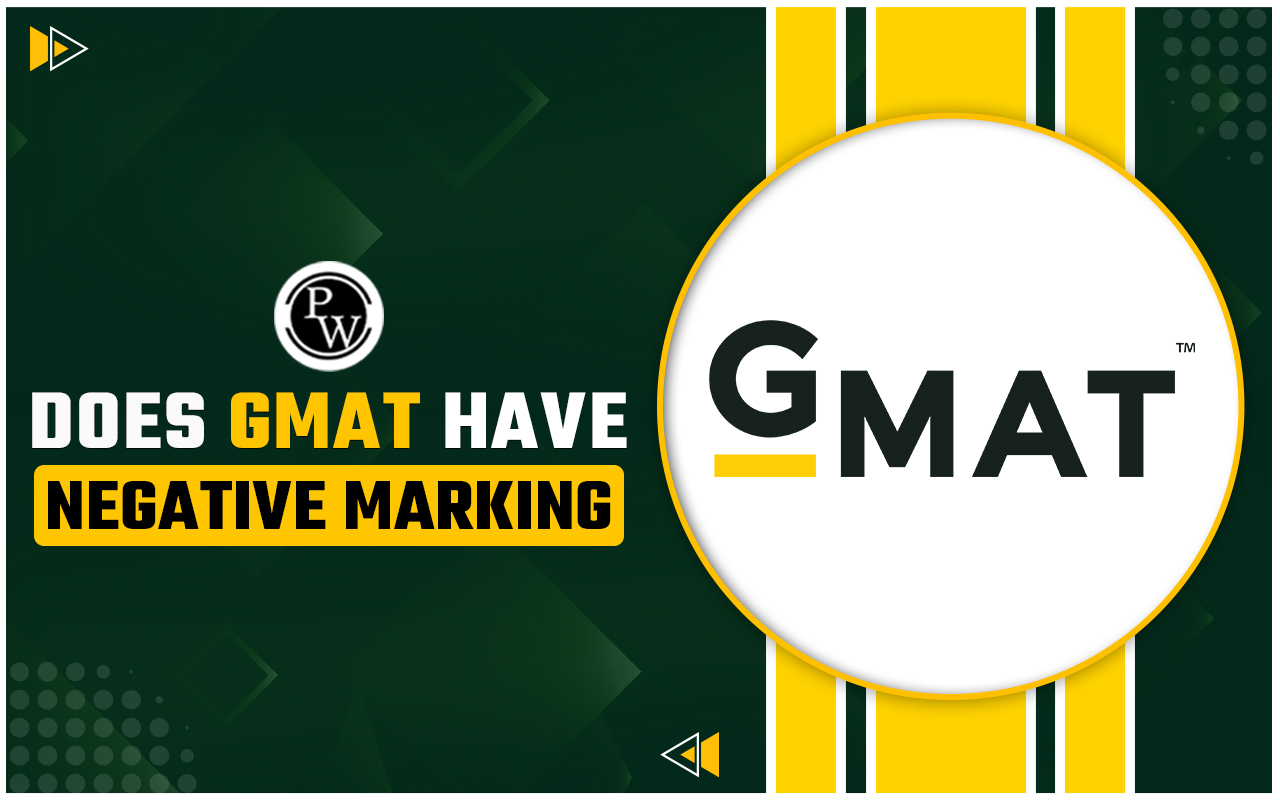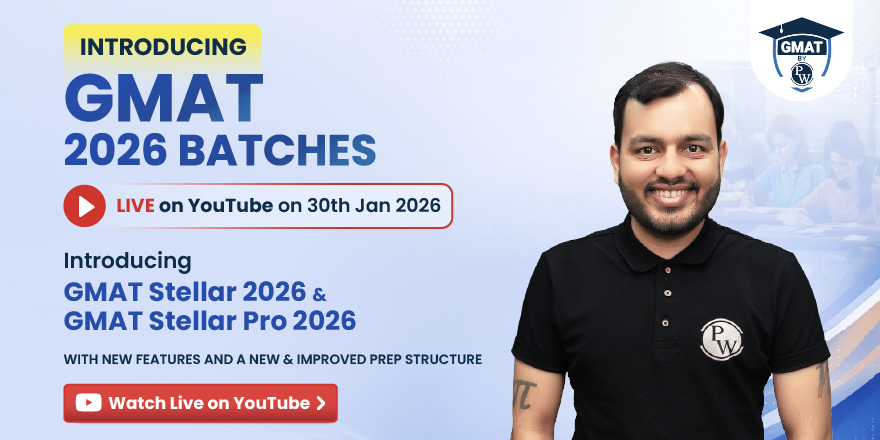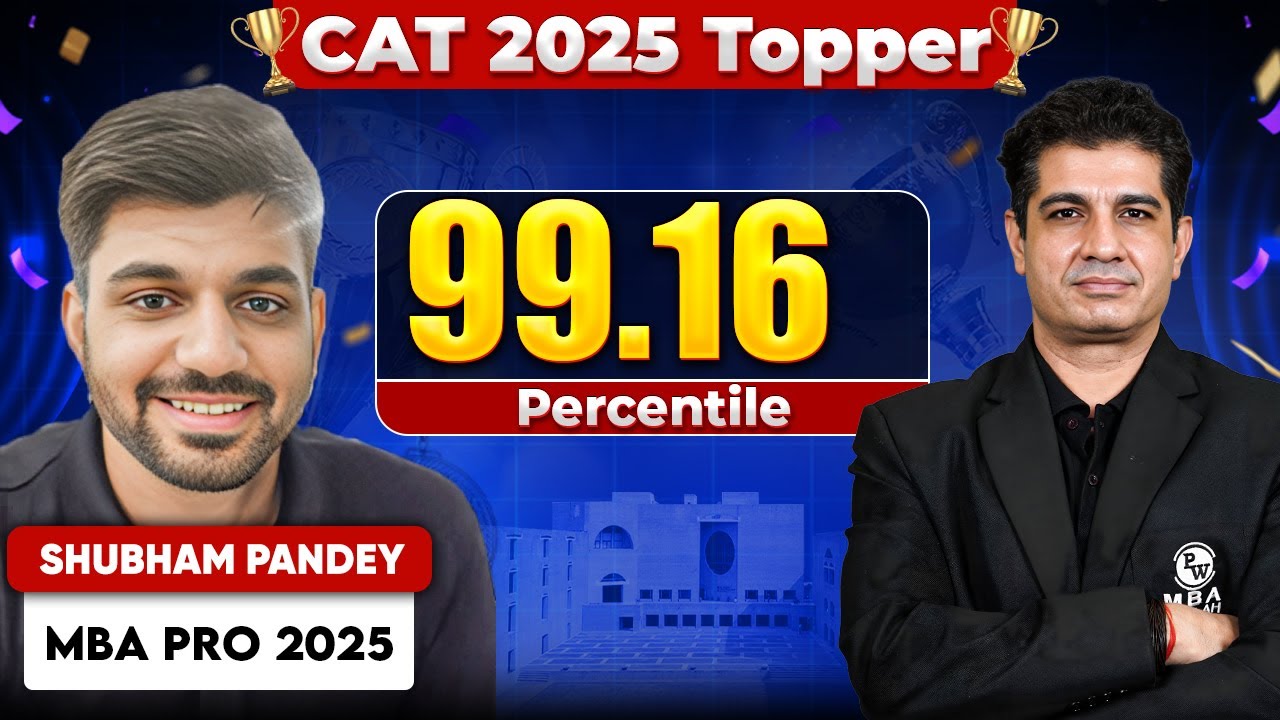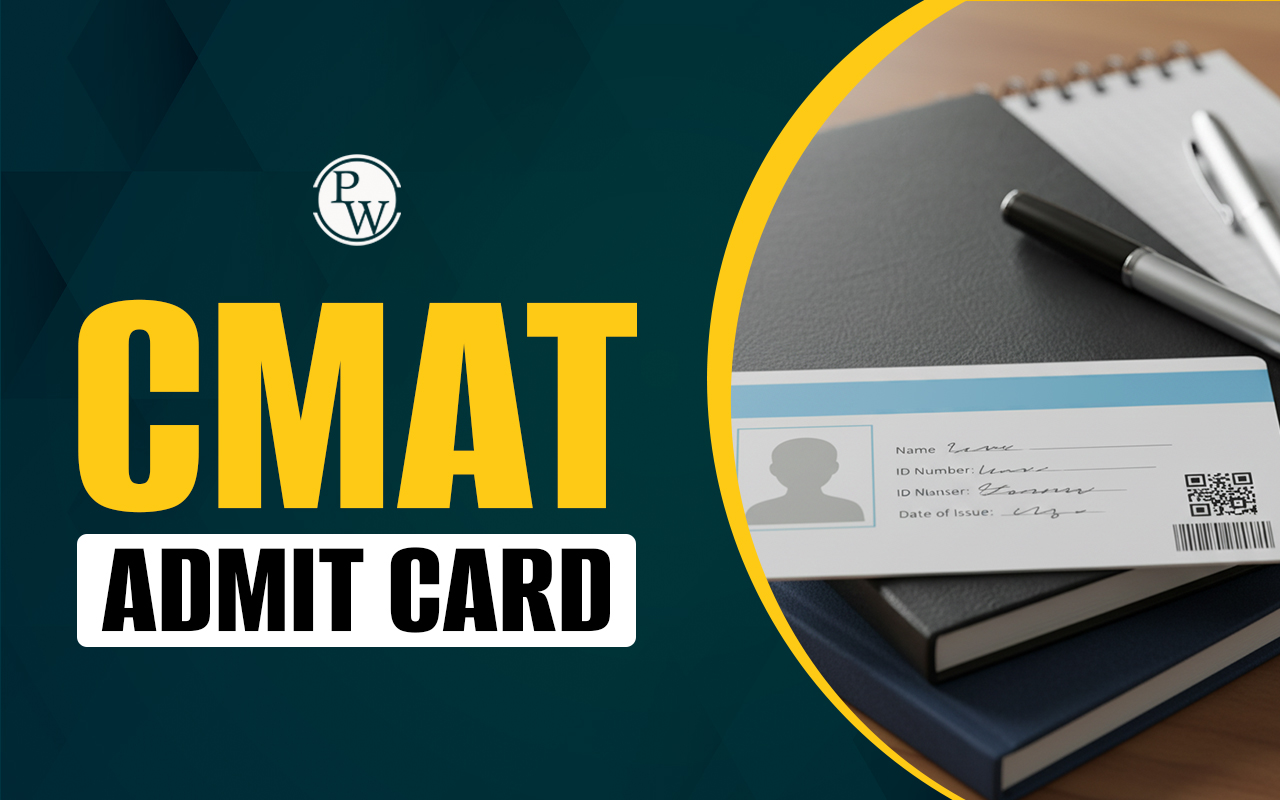
Does GMAT have Negative Marking: The GMAT (Graduate Management Admission Test) doesn't take off points for wrong answers. This means if you get an answer wrong, you won't lose points. The GMAT has four main parts: Analytical Writing Assessment (AWA), Integrated Reasoning, Quantitative Reasoning, and Verbal Reasoning. None of these parts take off points for wrong answers. You only get points for the right answers.
Also Read: GMAT Syllabus 2024
GMAT 2024 Examination Pattern
In 2024, the GMAT examination format includes four sections: Analytical Writing Assessment (AWA), Integrated Reasoning (IR), Quantitative Reasoning (QR), and Verbal Reasoning (VR). The total testing time is 187 minutes, and each section has its own duration and number of questions.- The exam adapts to the test taker's performance, meaning it adjusts the difficulty of questions accordingly. Test takers have the flexibility to choose the order in which they tackle the sections.
| GMAT 2024 Examination Pattern | |||
| Section | Duration | Scoring | Type of Questions |
| Analytical Writing | 30 minutes | 0-6 (0.5 point increment) | Analysis of an Argument |
| Quantitative Reasoning | 62 minutes | 6-51 (1 point increment) | Problem Solving and Data Sufficiency |
| Integrated Reasoning | 30 minutes | 1-8 (1 point increment) | Two-part Analysis, Table-analysis, Multi Source Reasoning, and Graphics Interpretation |
| Verbal | 65 minutes | 6-51 (1 point increment) | Sentence Correction, Reading Comprehension, Critical Reasoning |
Does GMAT have Negative Marking?
The GMAT exam doesn't penalize test-takers for wrong answers, thanks to its computer-adaptive system. This means question difficulty adapts to the test-taker's performance. Each section is scored separately, but the total score relies on the verbal and quantitative sections. The exam comprises four sections: Analytical Writing, Integrated Reasoning, Quantitative Reasoning, and Verbal Reasoning, each with its own scoring range and question types.GMAT Score Calculation
The GMAT has a scoring system from 200 to 800. Your total score comes from how well you do in the Quantitative, Verbal, and new Data Insights parts. Each of these sections gets a score between 60 and 90.- Your scores aren't just about how many questions you get right. They mostly depend on how hard the questions you miss are. If you miss harder questions, you can still get a higher score than if you miss easier ones, even if you make the same number of mistakes.
To find your overall GMAT score, they use a special formula to combine the scaled scores from all three sections. This final score also ranges from 200 to 800. Your performance is compared to other test takers and shown as a percentile ranking. The GMAT isn't a test you pass or fail. A "good" score for the GMAT is one that's higher than the middle score for the business school you want to go to. But even if you get a high score, it doesn't guarantee you'll get into the school. It's just one part of a strong MBA application.
AWA score Calculation
The Analytical Writing Assessment (AWA) score is determined by two main factors. Firstly, it considers the organization of your writing and the structure of your sentences. Secondly, it assesses the coherence of your ideas, your ability to analyze arguments, and the quality of the examples you provide.Integrated Reasoning Score Calculation
To find out your Integrated Reasoning (IR) score on the GMAT, you need to know a few things. Your GMAT IR score is determined by how many questions you answer correctly, excluding any experimental questions. This score is then adjusted to a scale from 1 to 8. The scaled score shows how hard the questions were, but it's hard to say exactly how much the difficulty affects your score.- You also get a percentile score, which compares your performance to other GMAT test-takers. The GMAT IR section has 12 questions of different types, and you need to answer each part of a question correctly to get credit. There's no partial credit. Your IR score is separate from your Verbal and Quantitative scores, and it doesn't affect your overall score out of 800.

Quantitative Reasoning Score Calculation
The GRE Quantitative Reasoning score is figured out by looking at how many questions you get right, how hard those questions are, and how many questions you answer in total. This score is then turned into a scaled score between 130 and 170 using a method called equating. Here's how the scores break down:- If you get 0 to 5 questions right, your score will be between 130 and 135.
- If you get 6 to 10 questions right, your score will be between 136 and 140.
- If you get 11 to 15 questions right, your score will be between 141 and 145.
- If you get 16 to 20 questions right, your score will be between 146 and 150.
- If you get 21 to 25 questions right, your score will be between 151 and 155.
- If you get 26 to 30 questions right, your score will be between 156 and 160.
- If you get 31 to 35 questions right, your score will be between 161 and 165.
- If you get 36 to 40 questions right, your score will be between 166 and 170.
Verbal Reasoning Score Calculation
To find your Verbal Reasoning score on the GRE exam, each correct answer you give in the Verbal Reasoning section earns you one point. Your raw score is the total number of correct answers you get in both the Verbal and Quantitative sections combined. This raw score is then converted to a scaled score, which can range from 130 to 170, depending on how difficult the questions were.- In the Verbal Reasoning section, there are 40 questions. For each question you answer correctly, you get one point. If a question has multiple blanks or parts, you need to answer the entire question correctly to earn a point; partial credit isn't given. Wrong answers don't take away points.
Does GMAT have Negative Marking FAQs
Does the GMAT have negative marking?
No, the GMAT exam does not have negative marking. Candidates are not penalized for incorrect answers.
How are GMAT scores calculated?
GMAT scores range from 200 to 800, based on performance in the Quantitative, Verbal, and Data Insights sections. Scores are determined by the difficulty level of questions answered correctly rather than the number of correct answers alone.
Is partial credit given for partially correct answers?
No, the GMAT does not provide partial credit for partially correct answers. Each question must be answered entirely correctly to earn a point.
Are experimental questions counted in the final score?
No, experimental questions are not counted in the final score. They are used for research purposes and do not contribute to the test-taker's score.
How does the GMAT adaptive system work?
The GMAT adaptive system adjusts the difficulty of questions based on the test-taker's performance. Correct answers lead to more difficult questions, while incorrect answers lead to easier ones. This adaptive process continues throughout the exam.
Talk to a counsellorHave doubts? Our support team will be happy to assist you!

Free Learning Resources
PW Books
Notes (Class 10-12)
PW Study Materials
Notes (Class 6-9)
Ncert Solutions
Govt Exams
Class 6th to 12th Online Courses
Govt Job Exams Courses
UPSC Coaching
Defence Exam Coaching
Gate Exam Coaching
Other Exams
Know about Physics Wallah
Physics Wallah is an Indian edtech platform that provides accessible & comprehensive learning experiences to students from Class 6th to postgraduate level. We also provide extensive NCERT solutions, sample paper, NEET, JEE Mains, BITSAT previous year papers & more such resources to students. Physics Wallah also caters to over 3.5 million registered students and over 78 lakh+ Youtube subscribers with 4.8 rating on its app.
We Stand Out because
We provide students with intensive courses with India’s qualified & experienced faculties & mentors. PW strives to make the learning experience comprehensive and accessible for students of all sections of society. We believe in empowering every single student who couldn't dream of a good career in engineering and medical field earlier.
Our Key Focus Areas
Physics Wallah's main focus is to make the learning experience as economical as possible for all students. With our affordable courses like Lakshya, Udaan and Arjuna and many others, we have been able to provide a platform for lakhs of aspirants. From providing Chemistry, Maths, Physics formula to giving e-books of eminent authors like RD Sharma, RS Aggarwal and Lakhmir Singh, PW focuses on every single student's need for preparation.
What Makes Us Different
Physics Wallah strives to develop a comprehensive pedagogical structure for students, where they get a state-of-the-art learning experience with study material and resources. Apart from catering students preparing for JEE Mains and NEET, PW also provides study material for each state board like Uttar Pradesh, Bihar, and others
Copyright © 2026 Physicswallah Limited All rights reserved.











